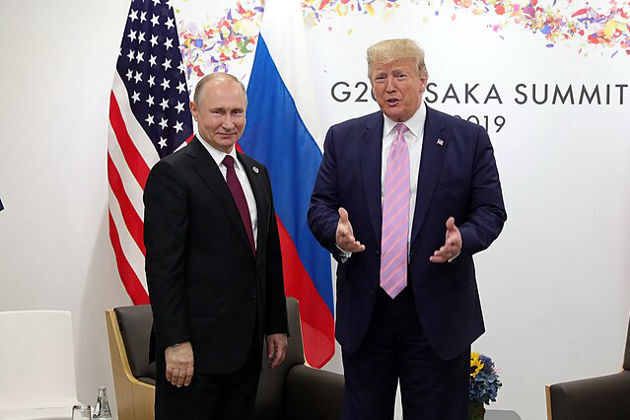Move FM Global News

US–Russia summit raises hopes, fears over peace deal
Aug 11, 2025WASHINGTON, D.C.: President Donald Trump announced on August 8 that he will meet Russian President Vladimir Putin in Alaska next week to discuss ending the war in Ukraine — a move he described as a potential turning point after months of stalled peace efforts.
The Kremlin has not yet confirmed the details, but both governments had recently indicated that a meeting was likely. Trump’s decision to host Putin on U.S. soil, rather than in a neutral country, represents a notable diplomatic shift, offering the Russian leader visibility that the U.S. and its allies have tried to deny since his 2022 invasion of Ukraine.
The conflict, now in its fourth year, has killed tens of thousands, displaced millions, and left Ukrainian cities in ruins. Despite Western military aid and sanctions on Moscow, Russia’s larger forces have made incremental gains, particularly around Pokrovsk in the eastern Donetsk region.
Trump said the Alaska talks would come before any meeting with Ukrainian President Volodymyr Zelenskyy, even if Putin refused to engage with him — a stance that has raised concern in Europe about Ukraine’s role in negotiations. He hinted a peace deal could involve a “swapping of territories” but offered no specifics. Analysts speculate Russia might give up areas outside the four regions it claims to have annexed, though Kyiv insists it will not cede land.
“I believe President Putin wants to see peace, and Zelenskyy wants to see peace,” Trump told reporters, adding that Ukraine is “getting everything it needs” if an agreement is possible. While rejecting the term “last chance” for peace, he noted that once fighting intensifies, “it’s awfully tough to get ’em to stop.”
Scheduled for August 15, the meeting will be the first U.S.–Russia summit since President Joe Biden met Putin in Geneva in 2021. Putin last visited the U.S. in 2015 for the U.N. General Assembly. Relations have soured sharply since Russia annexed Crimea in 2014, was accused of interfering in the 2016 U.S. elections, and launched its full-scale invasion of Ukraine.
Trump suggested the summit had been delayed by security arrangements but claimed it could lead to progress, similar to his recent mediation efforts between Armenia and Azerbaijan. Two weeks ago, frustrated by continued Russian strikes, he advanced an ultimatum: more sanctions on Moscow and secondary tariffs on countries buying Russian oil unless movement toward a settlement occurred.
Meanwhile, Putin has been speaking with key allies, including Chinese President Xi Jinping and Indian Prime Minister Narendra Modi, as well as leaders of South Africa, Kazakhstan, Uzbekistan, and Belarus. Kremlin analyst Sergei Markov suggested this outreach might signal groundwork for a potential deal.
Still, significant obstacles remain. Ukraine faces manpower shortages along its 1,000-kilometer front line, while Russia continues its costly offensive without signs of scaling back its ambitions. Whether Anchorage produces a breakthrough or another symbolic exchange will become clear only after the two leaders meet.


